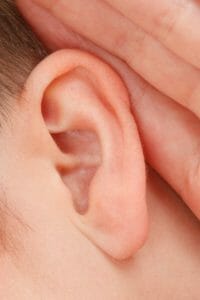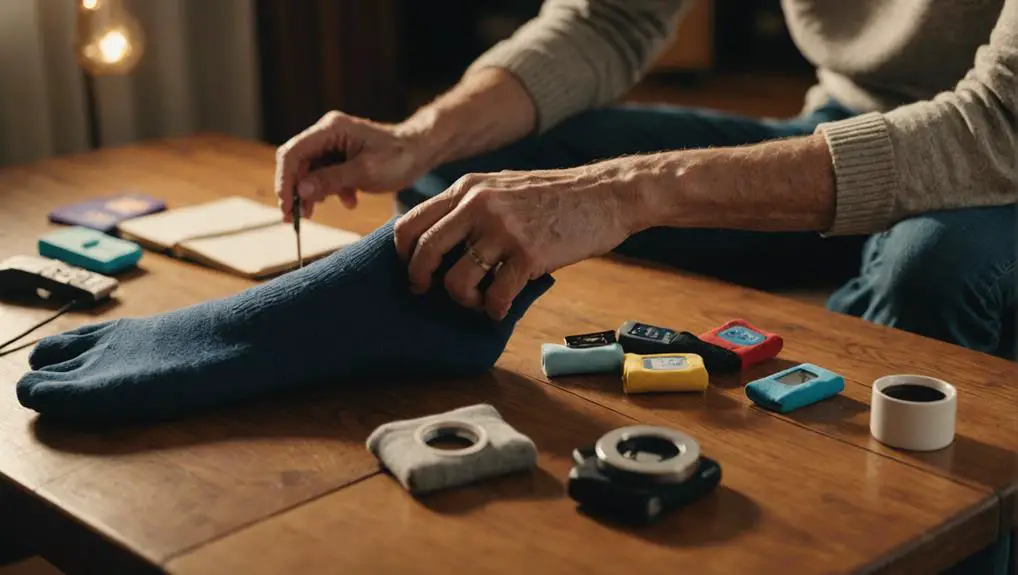In this article, I will help you understand when do you need a hearing aid, what are the different kinds of hearing aids and more.

Many adults begin to feel impaired hearing at a certain age (some feel it even at a relatively young age, around the age of 40).
You can get along with it for a while, but usually, it just gets worse, and it is very important to know when do you need a hearing aid.
When hearing deteriorates, those who suffer from the problem will prefer to avoid social gatherings, because the communication is not as it used to be.
This can also become a real danger when a person drives a car and does not hear his environment, which can lead to an accident.
To our delight, hearing aids are a technological accessory that helps to hear better.
Also, make sure to check out my post on 13 Best Mobility Aids for Parkinson’s Patients – The Complete Guide.
The technology in this field is developing greatly, and today’s hearing aids are more advanced and offer additional options such as filtering background noise, switching between channels and more.
We will expand on this later.
Table of Contents
When Do You Need A Hearing Aid?
Initially, you can detect changes in hearing if you often increase your TV or radio, if you suddenly ask more and more “What?” Every time someone talks to you, or you suddenly notice that those around you are muttering and talking weakly, and so on.
Many do not attribute importance to this and dismiss those who comment on it. It is very important to recognize the limitation and understand that it can be addressed by advanced technological means that will improve the way of life.
Once there is an acknowledgment that there is a problem, consult an ENT doctor to check.
The doctor checks the ear canal and the source of the problem. Sometimes the hearing loss is due to a high accumulation of wax.
If this is not the case, the doctor will perform an in-depth examination of the entire ear and will ask for further examination by a speech therapist.
The speech therapist’s examination is called an auditory test. There are hearing problems that can be solved by medication or surgery.
If you can not treat with medication or surgery, you will be given a recommendation to assemble hearing aids, so-called hearing rehabilitation.
Adult Hearing Aids And Reasons Why They Won’t Use Them
Presbycusis is the medical term for hearing loss caused by aging and is also the most common cause of hearing loss in the elderly.
In most cases, this type of hearing loss cannot be cured or treated and the best solution is a hearing aid.
Fifty percent of adults in the United States between the ages of 75 and 84 begin to suffer from this phenomenon, which increases to 95% by the age of 94.
Despite the significant limitations that hearing loss causes to the elderly, only about 20% of adults in the United States have ever purchased a hearing aid, and most rarely use it.
Why do not people use their hearing aid? Well, if you are also struggling with hearing loss and are opposed to using the device, it is important to know that the common reasons for not using hearing aids are not logical:
- It’s about age.
It is hard to make any concession to old age in a culture that glorifies youth.
But do you really want to constantly ask people to repeat what they say, just so you do not look old? - Adaptation difficulties.
One of the most common causes of hearing loss is that it’s just too complicated. “I’m too old for change and I do not feel like messing around with it” – is a common complaint – remember the TV remote control, does not it ever seem complicated to you? - cosmetics.
Manufacturers of hearing aids are aware that appearance is an important factor.
Therefore, they continue to produce more and more small hearing aids (although smaller is not necessarily better). Today’s hearing aids can hide in your ear. But even if your hearing aid is visible, is it really such a big story? Are you worried that someone will see you with glasses? - Unrealistic expectations.
You may have heard from friends that hearing aids simply do not work. In many cases, bad use of hearing aids results from poor medical evaluation and inadequate suitability.
But, even under the best of circumstances, your hearing will not return to its previous state.
Hearing aids help but do not heal. - Costs.
Your medical insurance will not always cover the purchase of the hearing aid and it is quite expensive. The diagnosis itself may be covered by insurance, but a single hearing aid can cost about $ 2,500.
However, it is worth investing in a quality hearing aid to improve quality of life.
How Do Hearing Aids Work
The hearing aid is an accessory that helps the hearing impaired by increasing the voices around them.
The external sounds are picked up by a microphone and transferred to the inside of the ear using components such as speakers, electrodes, and etc.
There Are Two Main Types Of Hearing Aid Structures:
- External device – This device is located behind the ear and connects to an Earphones inside the ear.
- Internal device – A tiny device inserted into the ear, without external equipment, and pulled out by a small wire.
The Type Of Hearing Aids Is Adapted To Each Person According To Several Criteria:
- Motor Capabilities – Can a person handle himself when it comes to assembling the device or needs help.
- Ear structure – not every ear structure allows the reception of any instrument.
It is important that the speech therapist conduct special tests for hearing instrument adjustment and not just a regular hearing test.
This is especially important for adapting more technologically advanced digital devices. - Sizes-in order for taking measurements and perfectly matching the structure of the ear, the ear is filled with silicone material that hardens and after removing it gives exactly the exact structure.
What Is The Difference Between An Analog Hearing Aid And A Digital Hearing Aid?
A standard analog hearing aid increases sound evenly without any differences, while a digital hearing aid has advanced components that can process the sounds and allow the user to hear better – for example, digital hearing aids can filter out background noise.
Advanced devices can also program special programs for different situations, such as a situation where there is a crowd of people or a situation where the user watches TV.
There are also devices that can interface to accessories and connect directly to the TV or stereo system.
When Do You Need A Hearing Aid On You?

After the period of adaptation to the instruments and their presence in the ears, it is best to wear them during all hours of awakening.
This way you can get used to hearing those around you, and they can also get used to the new situation where they do not have to yell at you instead of talking.
There will probably be an improvement in your vocal cords.
Until you assembled hearing aids you did not hear yourself and used to speak loudly and even shout, which physically affected the vocal cords, and now they can slowly recover.
Accessories For Hearing Aids
There are accessories for hearing aids that are not mandatory but depend on your need.
Here are some examples:
- Cleaning kits or brush kits – These are special kits that contain tools designed to clean the hearing aids so that your hearing will not be damaged by dirt or fillings.
- Various preparations – to maintain hygiene, to dissolve the wax accumulated on the device and etc.
- FM systems – These systems enhance speech comprehension especially in situations where there is a lot of noise around the user.
- Handsfree – A device used to connect the hearing aid to the cellular phone.
- Sound amplifiers – A portable device (usually hanging on the neck) that transmits sound directly to the hearing aid.
Designed for cell phones, home phones, TV, audio systems and more
Hearing Aids – Prices
The price range of hearing aids considered to be good and advanced ranges from 1000$ to NIS 6000$.
It all depends mainly on the level of the device in terms of technology and its size (the smaller it is, the higher its price). In contrast, the prices of analog hearing aids which are very simple without customization can range around several Dozens of dollars.
Your choice of the device also depends on your lifestyle – if you are still working and communicating with the environment (face to face or through various technologies such as cell phones or computer conferencing) on a daily basis and it requires you to stay connected, you will probably need a relatively advanced device.
If you are retired and do not need multiple interfaces, you may choose a simpler device to connect amplifiers to special cases.
I hope that I helped you to understand when do you need a hearing aid and more important stuff regarding hearing aids.

Hi, my name is Eddie, I am a professional trainer specializing in the elderly population and I’m also a website designer. I love training in the gym, going to the beach, traveling, and having good food.
I combined my love for sport and website designing to make “DisabilitEase” whose purpose is to help elderly and disabled people live a more full and active life, have more fun, and enjoy their unique journey despite any disability.


